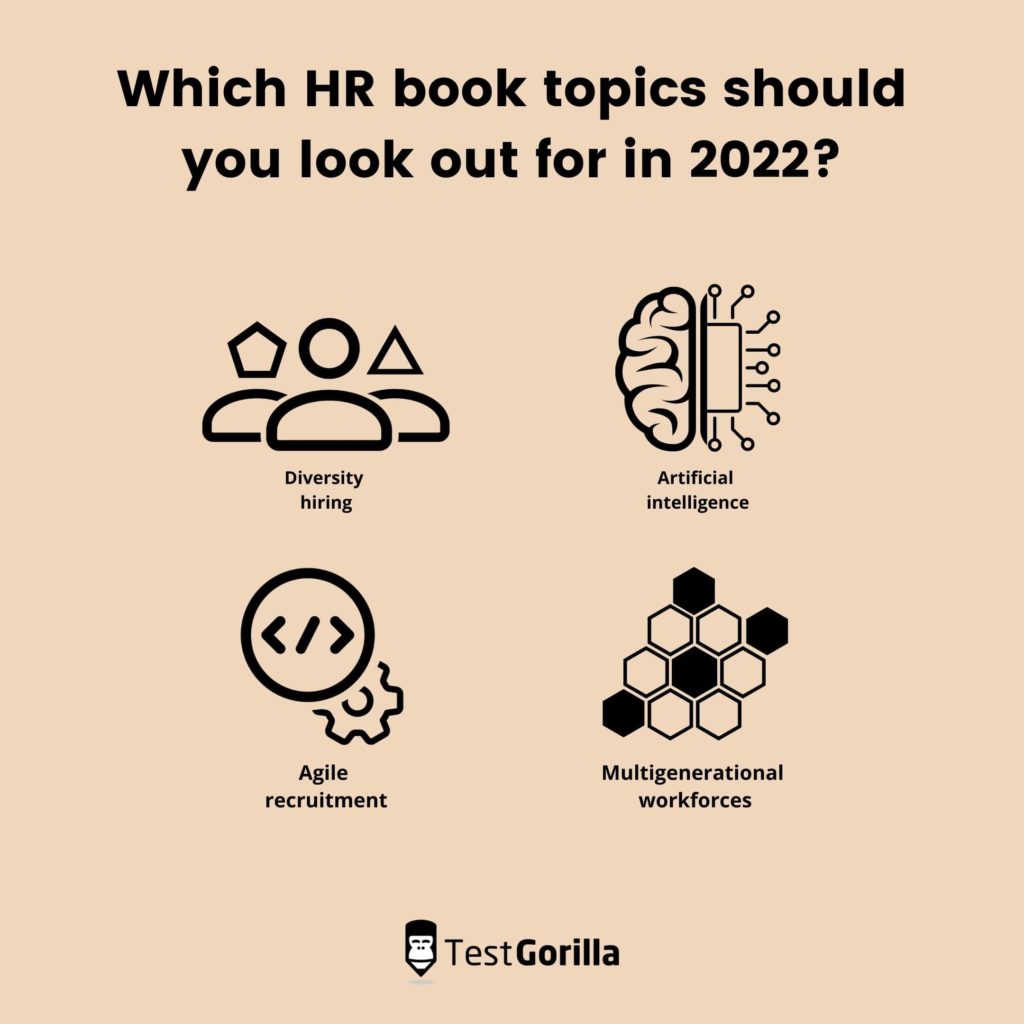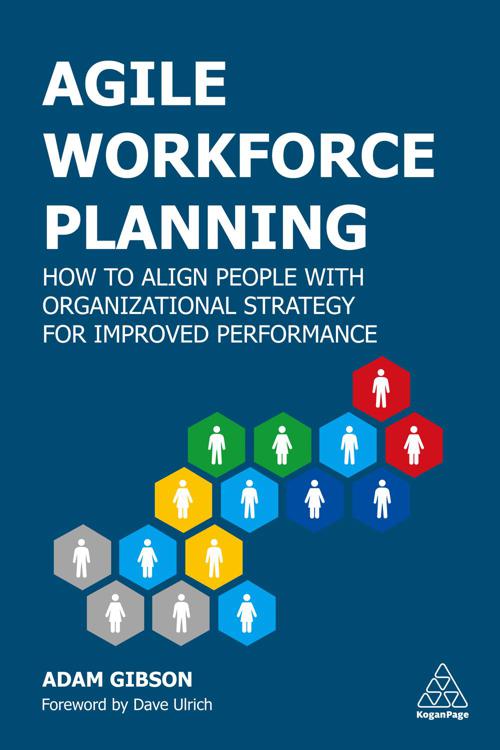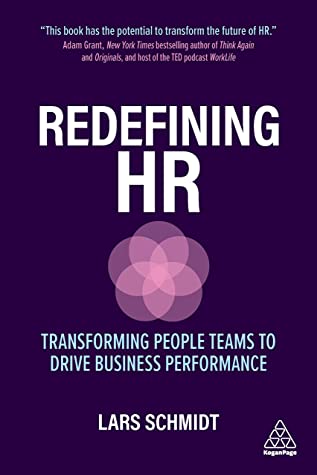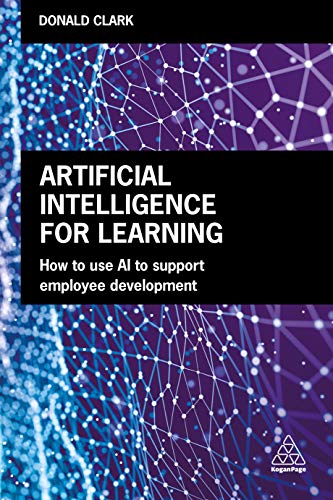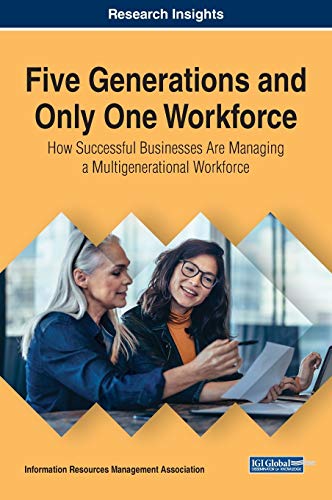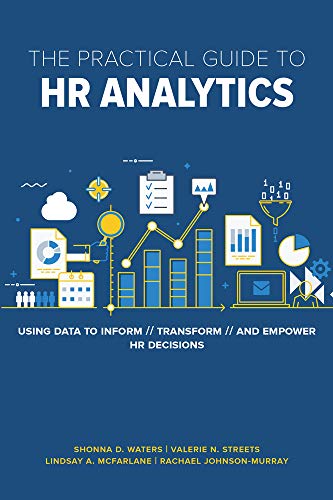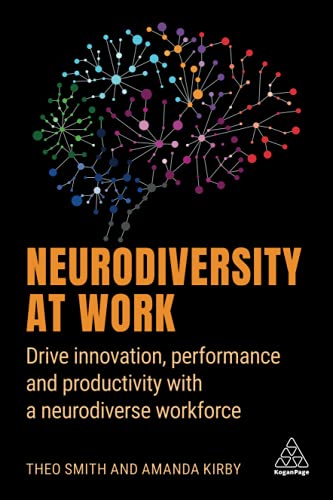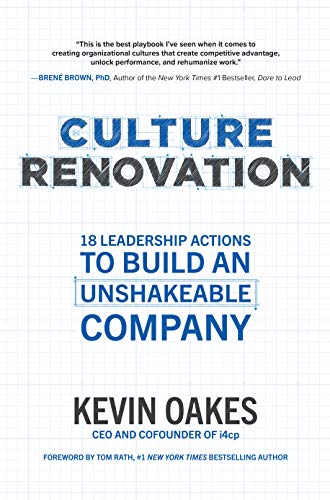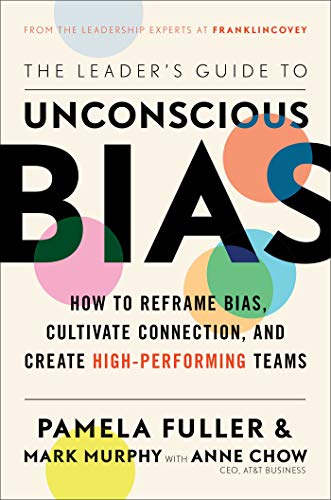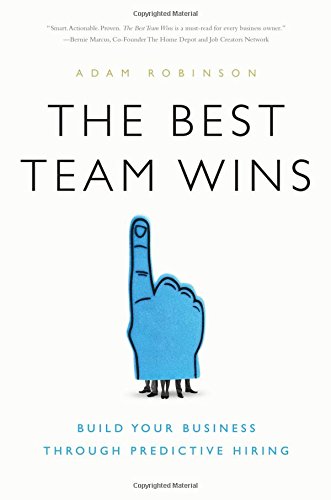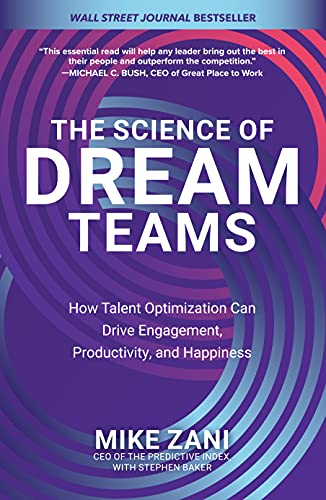There’s no doubt that staying up to date with the latest HR trends is important if you’re an HR professional. Keeping an eye on developments in human resource management can make a huge difference to your level of expertise. But it isn’t always easy to remain up to speed.
Reading the best HR books is one of the most effective ways to keep track of developments in human resources, so we’ve put together this list of HR books to read to help you keep your finger on the pulse of new important trends.
Let’s take a look!
Which HR book topics should you read?
So, which HR book topics should you buy and read?
Here are four trends that you should keep an eye out for in the coming years.
1. Diversity hiring
Diversity hiring is a popular HR topic that’s likely to continue in the coming years. According to Forbes, 67% of hiring managers believe diversity, equity, and inclusion are top priorities for HR in 2021. And to become an inclusive organization, HR professionals will need to articulate a genuine commitment to diversity.
2. Artificial intelligence
Increasingly, human resource professionals are using artificial intelligence insights and technology as part of their talent management. It seems that the future of human resources will include machine learning and artificial intelligence in some form.
Although we’re not saying that AI will replace human recruiters, it will continue to be an important part of recruitment. Indeed, by the end of this year, early AI adopters plan to double the projects that use artificial intelligence in recruitment.
3. Agile recruitment
Agile recruitment is a trending topic in the world of technical recruitment. It’s normally used in tech organizations to hire exceptional developers or technical staff. However, agile recruitment methods are not restricted to technical teams; in fact, many organizations question traditional recruiting and reinvent it with agile methods.
Jobvite predicts that agile recruitment will be a recruiting trend to watch for in the coming years.
4. Multigenerational workforces
Because understanding how to engage a multigenerational workforce can make a big difference to retention, this has been a hot topic lately and is another HR trend likely to continue in the coming years.
16 HR books you should have in your library
With these trending topics in mind, here are the top 16 HR books to prepare yourself for what's ahead in HR.
1. Agile Workforce Planning, by Adam Gibson
How can you use agile workforce planning to address a skills gap in your organization and source candidates with the relevant competencies in those areas? This is the question that Adam Gibson’s Agile Workforce Planning answers.
Learn all about agile recruitment and how you can implement a six-stage framework for agile workforce planning to build an effective and productive team.
2. Redefining HR: Transforming People Teams to Drive Business Performance, by Lars Schmidt
If your goal is to learn how HR has evolved and will continue to develop, Redefining HR: Transforming People Teams to Drive Business is the HR book you need.
This book covers several topics, including how to manage hypergrowth, how the employer brand is vital for recruitment, why the employee experience is critical, and how it has evolved due to remote working. Additionally, it explains why “culture fit” should no longer be used and how diversity and inclusion has changed to include employee “belonging”.
3. Introduction to HR Technologies: Understand How to Use Technology to Improve Performance and Processes, by Stacey Harris
How familiar are you with new HR technologies?
If the range of HR technology available is a bit overwhelming for you, this Introduction to HR Technologies by Stacey Harris might help you familiarize yourself with it.
From topics on the history of HR technology and a glossary of HR technology terms and definitions, to the impact of the internet on recruitment nowadays, this HR book covers contemporary trends in technology that have shaped recruitment’s evolution.
You’ll learn that although embracing technology might be daunting, there are ways to choose the right technology for your organization and successfully manage the critical areas of recruitment. These include managing the performance of employees and how you can use technology to help them learn and develop in your organization.
4. Artificial Intelligence for Learning: How to use AI to Support Employee Development, by Donald Clark
You’ll find out all you need to know about chatbots, machine learning, and artificial intelligence and how it relates to employee development in Artificial Intelligence for Learning.
This HR book covers one of the top HR trends lately: AI’s role in recruitment. It takes complex topics such as neural language processing and adaptive learning in artificial intelligence and explains them clearly and simply.
It also has a section on data and learning analytics and how these relate to artificial intelligence and recruitment. If you’re curious to discover how AI can simplify candidate evaluation and assessment, Artificial Intelligence for Learning is the book for you.
5. Five Generations and Only One Workforce: How Successful Businesses Are Managing a Multigenerational Workforce (Trending Topics), by IRMA
Since there are potentially five generations of workers in a workforce, one challenge you might have encountered is managing talent of different ages and generations. This is precisely the topic that Five Generations and Only One Workforce focuses on.
How do you handle difficult HR topics such as the gap between generations and training and upskilling? How do you handle diverse teams and focus on inclusive strategies with a multigenerational workforce? You’ll learn how to achieve these difficult tasks with this HR book.
6. Agile HR: Deliver Value in a Changing World of Work, by Natal Dank and Riina Helström
If you’re unsure how agile HR and recruitment fit together and want to implement an agile HR recruitment strategy to enhance your hiring process, this HR book has got you covered.
Since it explores the principles of agile recruiting in detail, Agile HR: Deliver Value in a Changing World of Work is relevant for smaller tech teams as well as global corporations. It also contains case studies from various organizations related to agile recruitment.
7. The SHRM Essential Guide to Employment Law: A Handbook for HR Professionals, Managers, Businesses, and Organizations, by Charles Fleisher
Brush up on your employment law knowledge with this essential HR handbook by Charles Fleisher. The SHRM Essential Guide to Employment Law features chapters on gender and age discrimination, laws related to your duty of reasonable accommodation for people with disabilities, laws on work visas, and more.
This essential guide contains over 200 laws related to the workplace and takes a closer look at how these laws affect recruitment, employment, and hiring.
Ensure your hiring process is done within the parameters of the law and remain aware of how employment law is changing with this HR book.
8. The Practical Guide to HR Analytics: Using Data to Inform, Transform, and Empower HR Decisions, by Shonna D. Waters
If you’re encountering difficulties with data analytics and interpreting hiring data, The Practical Guide to HR Analytics will make data analytics simpler to understand. This HR book covers topics such as how to explore complex analyses and use data to inform your decisions.
There are also chapters on how to communicate your findings to your organization and how to evaluate your decisions. It is a clear and well-presented book that skips the highly technical details on building databases or cleaning information, making it easier for you to understand the role of data analytics in the HR field.
9. Evidence-Based Recruiting: How to Build a Company of Star Performers Through Systematic and Repeatable Hiring Practices, by Atta Tarki
Data-driven hiring decisions are critical for making the right hires for your organization, and if you want to learn more about data and recruitment, take a look at Evidence-Based Recruiting: How to Build a Company of Star Performers.
This HR book reveals Netflix and Google’s secrets to success when it comes to recruitment, and describes how they’ve dominated their markets.
It also features chapters on how to predict on-the-job success predictions, the importance of goal setting, and why so many job hiring predictions fail.
10. Neurodiversity at Work: Drive Innovation, Performance and productivity with a Neurodiverse Workforce, by Amanda Kirby
What is neurodiversity and how does it drive innovation and productivity? You’ll find out the answer to this in Neurodiversity at Work, in which Amanda Kirby describes the importance of neurodiversity and what makes a team neurodiverse.
Other topics covered in the book include a section on how recruiters can attract neurodiverse talent in recruitment, a chapter on what workplace adjustments are, and a section on how to plan effectively to achieve neurodiversity at work.
11. Wellbeing at Work, by Jim Clifton
Well-being at work has become critical post-2020 due to the global pandemic. Wellbeing at Work focuses on this important topic, describing what wellbeing at work is.
It also explores why the worst part of the day is spending time with a manager and provides statistics on social wellbeing in the workplace. Here you’ll learn the five crucial elements of wellbeing at work and what you can do as an HR professional to help employees achieve them.
12. Culture Renovation: 18 Leadership Actions to Build an Unshakeable Company, by Kevin Oakes
Cultural Renovation is an HR book that explains how you can build a high-performance culture in your organization and enhance employee relations in your business.
From chapters on setting your cultural path to monitoring progress and the importance of communicating clearly, this book features several sections related to three key phases for building a productive team: planning, building, and maintaining your team.
13. The Leader’s Guide to Unconscious Bias, by Pamela Fuller
Since unconscious bias can prevent leaders from hiring the right candidates for their organizations, and all human beings have this trait, you’ll need this HR book to learn how to challenge your unconscious bias to hire the right candidates.
Learn how to use empathy and remain curious about your candidates as part of your everyday actions to discover their potential, and discover how they can make a significant difference to your organization with The Leader’s Guide to Unconscious Bias.
14. Social Media Recruitment: How to Successfully Integrate Social Media into Recruitment Strategy, by Andy Headworth
As Andy Headworth states, social media in the workplace can be scary and confusing for many people. But you can confidently hire exceptional talent for your team by learning how to implement and refine a social media recruitment strategy with his HR book.
Some of the topics covered by Andy Headworth in Social Media Recruitment include how to select a social network, the different types of content creation tools, the difference between sourcing and recruiting, and how to enhance your employer brand with social media recruiting.
15. The Best Team Wins: Build Your Business Through Predictive Hiring, by Adam Robinson
Discover how predictive hiring can enhance your recruitment methods and why assessments are important for your hiring process with The Best Team Wins. Adam Robinson covers a huge range of predictive hiring topics such as employee turnover and cultural fit and how they relate to predictive hiring.
This book also covers topics such as personality testing, specifically the use of DISC assessments in the hiring process, and it features a section on reference checks.
16. The Science of Dream Teams: How Talent Optimization Can Drive Engagement, Productivity, and Happiness, by Mike Zani
What’s the ideal way to source and hire exceptional talent that will help your organization advance? The Science of Dream Teams will explain the top recruitment methods to help you hire a productive team and enhance employee engagement.
This HR book also mentions why the right tools and HR metrics are important when hiring the right team members and features sections on coaching, hiring, the importance of an HR scorecard, and onboarding new talent in your organization.
The best insights on HR and recruitment, delivered to your inbox.
Biweekly updates. No spam. Unsubscribe any time.
Read and explore HR books to stay up to date with new trends
Remaining up to date with new trends in HR can be a challenge, but with the right HR books you’ll always know what’s coming next.
Remember, the trends to watch out for in the coming years are:
Artificial intelligence
Multigenerational workforces
Agile recruitment
Diversity hiring
Take a look at some of the books on this list and explore others to keep advancing as an HR professional and make the best hiring decisions for your organization.
Related posts
You've scrolled this far
Why not try TestGorilla for free, and see what happens when you put skills first.


